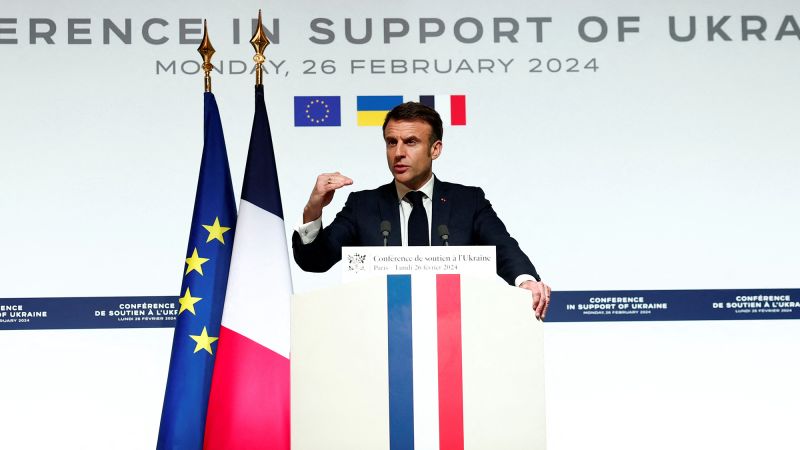**Body**
Emmanuel Macron, the French president, has recently sparked international attention with his suggestion that Western troops should be sent to Ukraine in an effort to curb Russian advances. This aims as a significantly weighty expression of Europe’s determination not to permit Russia from emerging victorious in this longstanding conflict. It can be regarded as a tour de force in the international arena that could reshape the security landscape of Europe and has been met with variegated reactions from different corners of the globe.
To comprehend this proposition’s gravity, one must deconstruct the fine threads that weave the complex tapestry of the Russia-Ukraine conflict. The crisis first ignited in 2014 when Russia annexed Crimea from Ukraine and has been perennially fuelled by the separatist movements in Eastern Ukraine that Ukraine and many Western countries contend are backed by Russia. An escalation in this conflict could pose serious ramifications for the international order.
Macron’s proposal comes in as a countermeasure, a beacon to protect Europe’s shared values and uphold the rules-based international order. Sending Western troops to Ukraine as a deterrent could effectively ‘hold the line’ against a further Russian advance. While this could inevitably provoke a reaction from Russia, Macron emphasized that the collective European nations would do anything we can to prevent Russia from winning.
This proposition is a testament to Macron’s vision of strategic autonomy for Europe, where a more proactive role in regional and global security is envisaged. He firmly believes in reinforcing Europe’s military capabilities, reaching out to NATO partners, and ensuring Europe’s security in the evolving geopolitical landscape.
Nevertheless, Macron’s proposal to send Western troops to Ukraine is fraught with practical and political challenges. There is a real risk of a military escalation between NATO and Russian forces, a confrontation that could have catastrophic outcomes. Unequivocally, the idea of placing Western troops on Ukraine’s Eastern front requires unanimous backing from NATO and EU members who might hold differing stance on the issue.
Critics argue that while Macron’s intentions may be virtuous, his proposal could inadvertently incite a global conflict exponentially larger than the current Russia-Ukraine crisis. The delicate equilibrium between de-escalation and deterrence must be maintained to prevent a military conflagration.
There’s also the question of the Ukrainian response. While Ukraine has often lobbied for more active Western involvement, the presence of foreign troops on the country’s soil may raise complex questions of sovereignty and influence.
Already, Macron’s proposal has sent ripples through international political circles, stirring debates about Europe’s responsibilities and capabilities in managing the Russia-Ukraine crisis. The reactions exemplify the intricate dynamics of the situation, with many speculating that it could mark a critical turning point.
Moreover, this move projects that Europe is ready to voice distinctive narratives and will not shy away from playing a more assertive role in global security affairs. It may also pave the way for a stronger collaboration within the joint European defense structure and NATO environment, deepening the defense cooperation among the nations.
On the whole, President Macron’s suggestion of sending Western troops to Ukraine is, undoubtedly, a courageous maneuver. However, it warrants a balanced, measured approach that reconciles the urgency of Ukraine’s plight, the risk of escalating tensions, and the broader implications for the global security landscape. Any decision must provide sustainable solutions to the crisis while remaining sensitive to the complex dynamics of international politics and security. The objective is clear: Europe must do anything in its reach to prevent Russia from gaining the upper hand in the conflict, while maintaining the momentum of peace and stability in the region.




